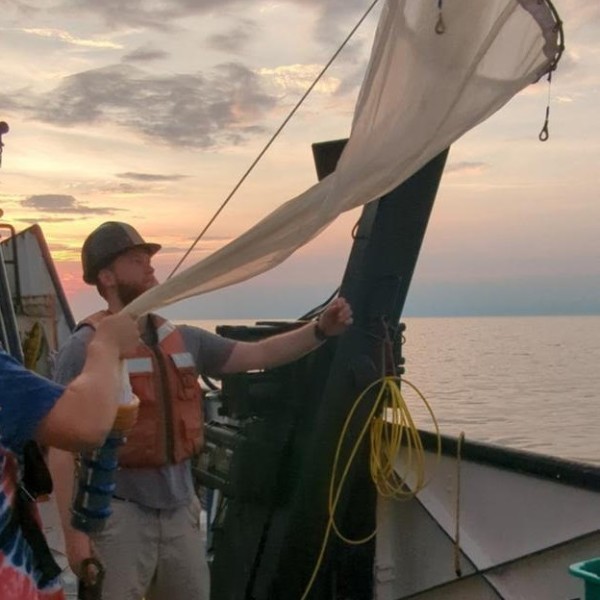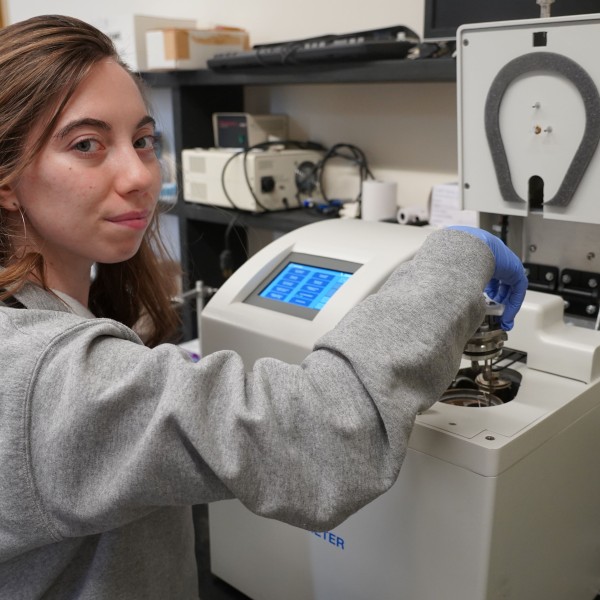Academic focus: Fungal genetics and genomics
Research summary: I study how fungi sense and respond to their environment. Specifically, I am interested in understanding how fungi sense available nutrients and efficiently utilize them. Accurate nutrient sensing is important for fungi to exploit environmental resources during plant infection or when breaking down dead plant material.
My lab uses genetic and genomic tools spanning from classical genetics to high-throughput functional genomics to study the genetic networks regulating how fungi sense and respond to the nutrients and other stimuli in their environment.
What do you like to do when you’re not working?
I love music and spending time outside! I play the flute, and I look forward to when it is safe to make music in groups again. I also spend as much time as I can outside orienteering, running, hiking and cross-country skiing. I’m really excited to explore the Adirondacks and the waterfalls and gorges around Ithaca.
What are three adjectives people might use to describe you?
Enthusiastic, motivated, curious
What brought you to Cornell CALS?
The thing that is most exciting to me about Cornell CALS is the fantastic community of plant pathology and microbiology researchers here. I am thrilled to have the opportunity to work with so many amazing fungal biologists. My research is very basic, and it’s great to have a community that includes other basic biologists as well as plant pathologists working on very applied questions because it provides so many rich collaborative opportunities.
What do you think is important for people to understand about your field?
When many people think about fungi, they default either to mushrooms that we eat or moldy food, but fungi are truly fascinating organisms. Fungi can make cellular networks that span hundreds of miles, and they destroy 30% of global crops. Fungi are responsible for more than 1 million human deaths per year, are decimating some frog, salamander and bat species, and are integral to nutrient cycling in our environment.
However, we know very little about what they eat, where they live and how they reproduce in the wild. If we want to improve global food security and save many animal species, we need to understand more about fungal biology.
Why did you feel inspired to pursue a career in this field?
I became interested in fungal biology in a sort of roundabout way. I initially wanted to work on questions relating to alternative energy. Filamentous fungi can break down agricultural waste into component sugars that can then be utilized by microorganisms that have been engineered to produce biofuels.
I started researching fungal nutrient sensing to better understand how fungi regulate the genes involved in deconstructing plant biomass. Obviously, fungal metabolism didn’t evolve in order to make second generation biofuels though. I became fascinated by the genetic networks regulating nutrient sensing and metabolism in fungi, which is important in fungal pathogenesis of plants and animals and in nutrient cycling in our environment.
What’s the most interesting thing you’ve discovered about Ithaca so far?
I’ve been really thrilled with all the opportunities for skiing and running around Ithaca. Especially moving here during a pandemic, it’s been a fantastic way to explore the area.
If you had unlimited grant funding, what major problem in your field would you want to solve?
In the lab we often study a single organism at a time, but fungi in the wild exist in a mixture of many different microorganisms. As it becomes easier to genetically manipulate various organisms, I think it would be fascinating to investigate the genes that mediate interactions between fungi and other microbes.
Learn more about Lori's work on the Huberman Lab website and on her faculty profile page.





